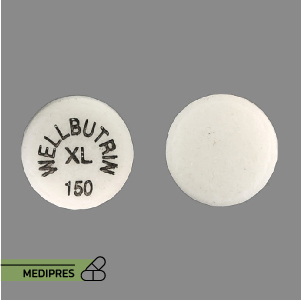
Warfarin
23 June, 2023
Wellbutrin
23 June, 2023Welireg
Generic name: Belzutifan
Drug class: Miscellaneous antineoplastics
Dosage forms: Tablet
Root of administration: Oral
Dose: 40mg
Mechanism of action: Welireg is a hypoxia-inducible factor (HIF) inhibitor that works by blocking HIF-2a, to help reduce tumor growth.
Drug usage cases: Welireg (belzutifan) is used in the treatment of von Hippel-Lindau (VHL) disease to help reduce the size of tumors, including tumors in the brain and spinal cord called central nervous system hemangioblastomas, pancreatic neuroendocrine tumors, and renal cell carcinomas. Welireg is also used to treat advanced renal cell carcinoma (RCC) in certain adults.
Drug contra indications: Before taking Welireg, tell your healthcare provider about all of your medical conditions, including if you:
have low red blood cell counts (anemia). Females who are able to become pregnant: You should do a pregnancy test before you start treatment with Welireg to exclude pregnancy. Birth control methods that contain hormones (such as birth control pills, injections, or transdermal system patches) may not work as well during treatment with Welireg. Talk to your healthcare provider about birth control methods that may be right for you during treatment with Welireg. Tell your healthcare provider right away if you become pregnant or think you may be pregnant during treatment. Males with female partners who are able to become pregnant: You should use effective birth control (contraception) during treatment with Welireg and for 1 week after your last dose. Tell your healthcare provider right away if your partner becomes pregnant or thinks she is pregnant while you are taking Welireg. Fertility: Welireg may cause fertility problems in males and females, which may affect your ability to have children. The reversibility of the effect on fertility is unknown. Talk to your healthcare provider if this is a concern for you. Using Welireg with hormonal contraceptives may stop the hormonal contraceptive from working (contraceptive failure).
Side effects: Get emergency medical help if you have signs of an allergic reaction: hives, difficulty breathing, swelling of your face, lips, tongue, or throat. Call your doctor right away if you have:
low red blood cells (anemia) – pale skin, tiredness, feeling light-headed or short of breath, cold hands and feet; or low oxygen levels – shortness of breath, chest pain, fast heartbeats; or vision problems Welireg may also cause the serious side effects of pneumonia, hemorrhage, and pleural effusion, sepsis and hemorrhage. Your cancer treatments may be delayed or permanently discontinued if you have certain side effects. Welireg may cause other serious side effects included in the Warnings section.
Warnings: Welireg can cause anemia (low red blood cells) or low oxygen levels. These conditions may need to be treated with blood transfusions, oxygen therapy, or hospitalization. You will have blood tests to check your red blood cell counts before you start and during treatment. Tell your healthcare provider if you get any symptoms of low red blood cell counts, including tiredness, feeling cold, shortness of breath, chest pain, or fast heartbeat.
Use during pregnancy or breastfeeding: Welireg may harm an unborn baby. Both men and women should use effective non-hormonal birth control to prevent pregnancy while using Welireg and for at least 1 week after the last dose. See ‘Before taking this medication’ section for more information on pregnancy and breastfeeding. Tell your healthcare provider if you are pregnant or plan to become pregnant, as Welireg may harm an unborn baby if the mother or father is using this medicine. Both men and women should use effective non-hormonal birth control to prevent pregnancy while using Welireg and for at least 1 week after the last dose. Do not breastfeed while using this medicine, and for at least 1 week after your last dose.



